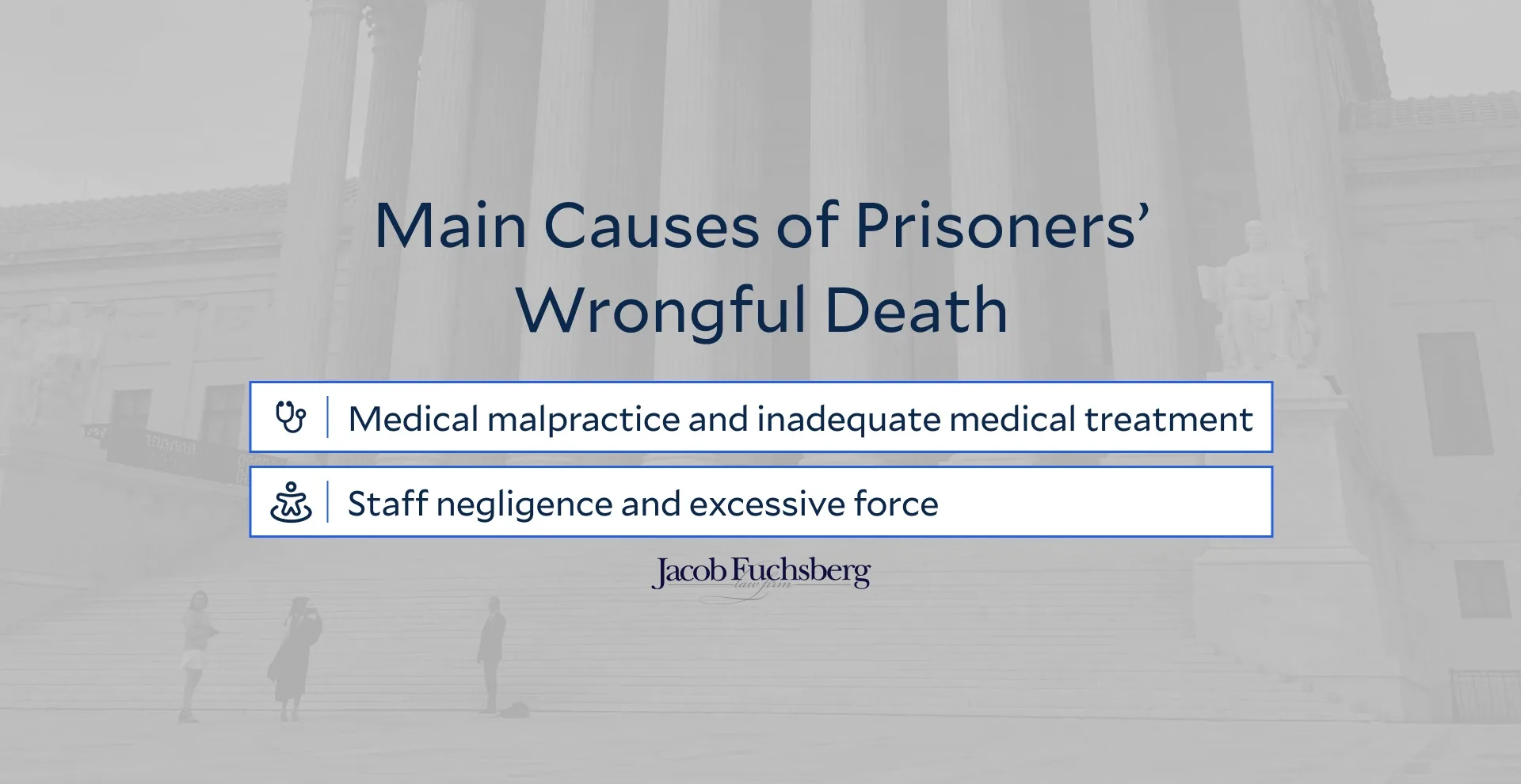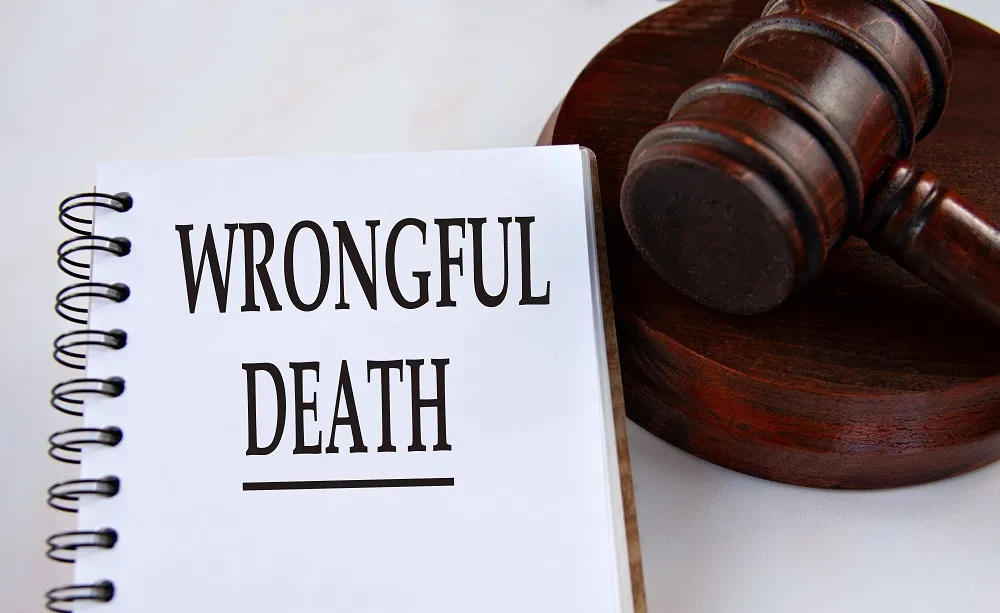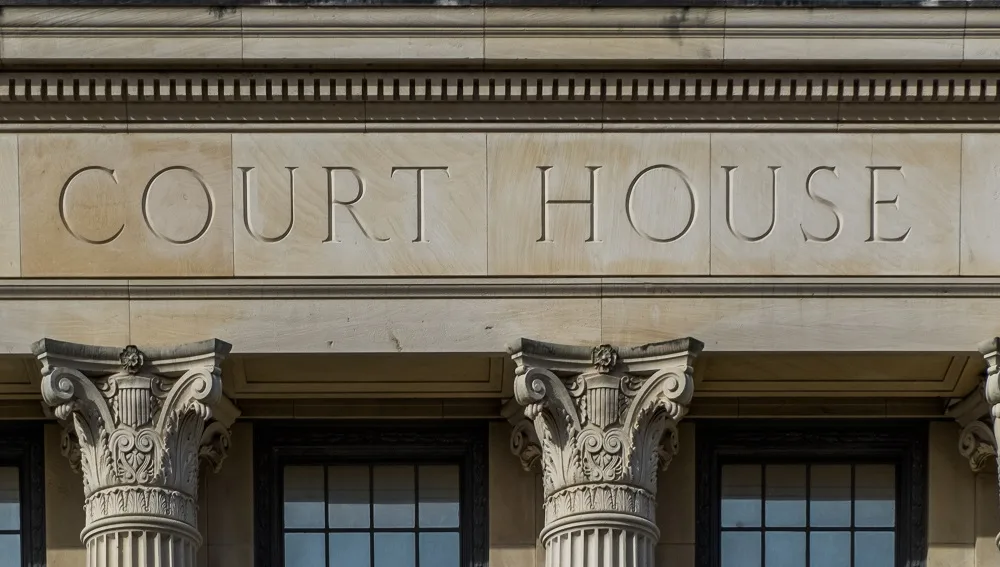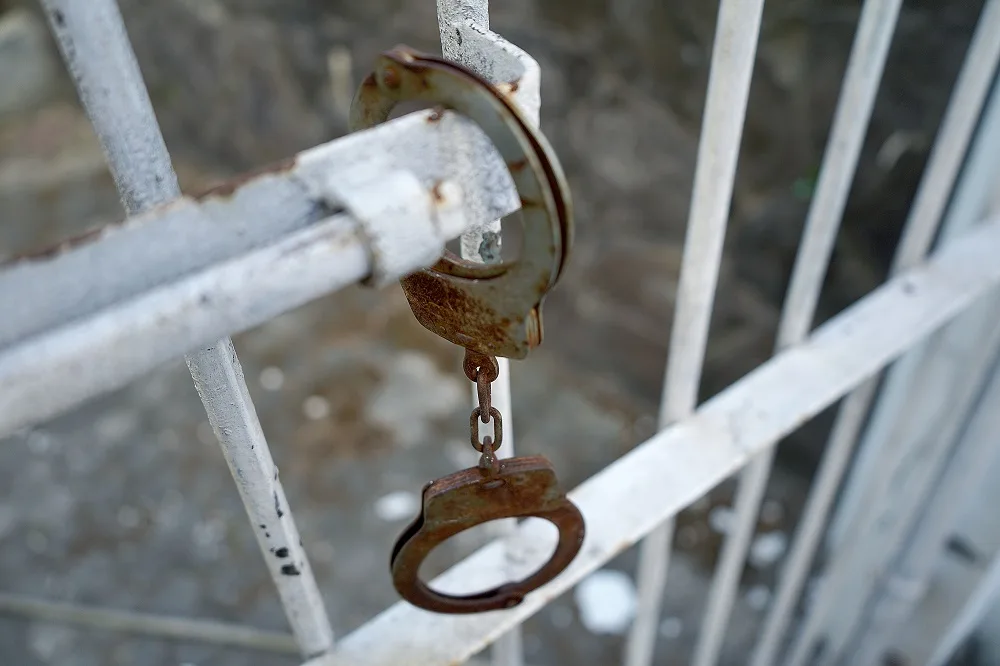- Loading...
Correctional facilities are dangerous places. What happens when an inmate dies in custody? Prison officials quickly write it off as just another prison death. But under the U.S. Constitution, a correctional facility assumes responsibility for the safety and health of inmates when it deprives them of their freedom.
If the facility fails to meet its constitutional duties, you can sue the prison for the death of your loved one. But these cases are not easy, so hiring an experienced prisoners' rights lawyer is absolutely necessary.
Prisoner Wrongful Death Statistics

The scale of prison deaths is staggering: From 2014 to 2021, federal prisons alone saw 187 deaths by suicide, 89 homicides, and 56 "accidental" deaths, with federal watchdogs finding that institutional failures and policy violations contributed to hundreds of these preventable deaths.
In more than 40% of suicide cases, prison officials missed clear prevention opportunities, while in nearly half of all 344 deaths reviewed, there were "significant shortcomings" in staff emergency responses.
Differences Between Wrongful Death and Criminal Homicide in Prison: Your Legal Options
You can successfully sue if someone dies in jail or prison, but knowing your legal options is crucial for effectively seeking justice for your loved one.
When someone dies in prison, the manner and cause of death will determine whether a criminal case, a civil case, or both can be brought. The civil system adjudicates disputes, and the criminal system adjudicates criminal violations.
Wrongful Death Claims in Prison
Under New York's law, the executor of the accident victim's estate can bring a wrongful death claim. When you win your case, the at-fault party must pay damages to you.
Criminal Charges: When Prison Deaths Lead to Prosecution
If your loved one died due to violence from another inmate or guard, criminal charges may be filed. Criminal homicide occurs when someone intentionally, knowingly, or recklessly causes another's death. However, you cannot control whether criminal charges are filed — only prosecutors can make that decision.
You Can Pursue Both: Civil Lawsuits and Criminal Cases
Important: You don't have to choose between a wrongful death lawsuit and criminal prosecution. These cases can proceed simultaneously:
- Criminal case: The state prosecutes the perpetrator (you have no control over this).
- Civil case: You sue for damages (this is entirely your decision).
Common Causes of Wrongful Prison Deaths
Many circumstances can support a wrongful death claim for a family. The most common causes relate to staff negligence and inadequate medical care.

Wrongful Death Due to Medical Malpractice
Under the Eighth Amendment to the U.S. Constitution, jails and prisons cannot engage in "cruel and unusual punishment". A correctional facility denying adequate medical care violates the inmate's Eighth Amendment rights.
To succeed in a medical-related claim, you must prove "deliberate indifference" — meaning the medical staff knew about a serious medical need and failed to provide treatment that meets professional standards. This medical negligence in correctional settings can take many forms:
- Failure to diagnose or treat serious conditions (heart disease, diabetes, cancer)
- Denial or delay of necessary medications
- Ignoring requests for medical attention
- Inadequate response to medical emergencies
- Failure to provide mental health treatment for known conditions
- Improper medical care that worsens conditions
Because inmates are entitled to the same level of medical care as the general public, estates can sue when substandard medical treatment contributes to death.
Wrongful Death Due to Staff Negligence and Excessive Force
Prison staff must act with reasonable care in all interactions with inmates. When prison deaths result from negligence, violence, or failure to protect, the facility can be held liable.
Common examples of actionable staff negligence include:
- Failure to prevent suicide: Not recognizing warning signs, inadequate monitoring, or ignoring suicide threats.
- Excessive use of force: Beatings, improper restraints, tasers, or chemical agents used beyond what's necessary.
- Failure to protect from violence: Allowing attacks by other inmates when risks were known.
- Inadequate supervision: Understaffing or negligent oversight leading to preventable harm.
Suing a prison is not easy. But if your attorney can prove that the prison failed to protect your loved one from a correctional officer, other inmates, or hazardous conditions, you can pursue a claim.
What to Do If Your Loved One Died in Jail or Prison
If your loved one died in custody, you should act quickly to protect your rights. The following are steps you should undertake to determine your legal options for suing the facility:
- Speak to an attorney: Most personal injury attorneys offer a free consultation. Once you learn about your options for pursuing justice for your loved one, you will have a better idea of how to proceed.
- Have the lawyer send a preservation letter to the facility: As soon as the agency has notice of your claim, it must preserve all evidence relating to the claim, such as surveillance video, notes, reports, and witness statements. If the facility ignores your demand letter and destroys evidence, a court can punish it.
- Make notes about everything you can remember from conversations with your loved one: Information about inmates, officers, other victims, abuse, and hazards can give your lawyer leads when searching for admissible evidence. Inmates and sympathetic guards might provide eyewitness testimony. Neglect, abuse, failure to provide medical treatment, negligent medical staff, hazardous conditions, and guard misconduct might be to blame for the death.
- Do not speak to anyone about your claim without your attorney present: The best course is to let the attorneys and the law handle your issue. Talking too much could prompt officers, administrators, or even other inmates to destroy evidence. Worse yet, you might give them the opening to talk you out of your claim or try to get you to settle for less than the value of your case.
Once you have gathered some information, you need to decide whether to proceed with your claim. Your inmate rights lawyer can evaluate the odds that you will recover compensation and estimate the value of your case.
Who Can File a Prisoner Wrongful Death Lawsuit?

Under New York law, only the deceased person's personal representative can file a wrongful death lawsuit. If the deceased inmate had a will, the executor serves as the personal representative. If the inmate died without a will, a probate court will appoint a personal representative.
Additionally, according to New York law, family members cannot bring a claim unless they have also been appointed personal representatives of the deceased person by a probate court.
Critical Filing Deadlines for Prison Wrongful Death Claims: Don't Let Time Run Out
You have an extremely limited time to file a wrongful death claim for deaths in New York correctional facilities.
For deaths in New York State facilities:
- 90 days from the date of the incident to file a Notice of Intention, which must be served on the state of New York.
- 2 years from the date of the incident to file a lawsuit.
For deaths in New York City and/or County facilities:
- 90 days from the date of the incident to file a formal Notice of Claim with the appropriate agency.
- 1 year and 90 days from the date of the incident, from the date of death, to file the actual lawsuit.
For deaths in federal facilities:
- 2 years from the date of the incident to file an administrative claim with the Federal Bureau of Prison.
- 6 months from the date of the incident, after the claim denial, to file a federal lawsuit.
Why these deadlines matter: Missing these deadlines can permanently bar your claim, regardless of how strong your case is. The 90-day Notice of Claim deadline is especially critical — it comes up fast while families are still grieving.
It is best to consult with an attorney to ensure that your right to file a lawsuit is protected.
Key Factors to Consider Before Filing a Prison Wrongful Death Lawsuit

Before you file a wrongful death claim after your loved one dies in custody, you and your lawyer must evaluate several critical factors that will shape your case.
Who Can Be Held Liable for an Inmate's Death?
Understanding who operates the facility is crucial for determining liability in your case:
Government entities:
- Jails: Usually operated by cities or counties (hold people awaiting trial and those convicted of misdemeanors).
- Prisons: Run by the state or federal government (hold people convicted of felonies).
Private entities: Some governments outsource the operation of facilities to private companies that you might also include in a lawsuit. When private companies step into the role of running institutions, they take on the same responsibilities to care for inmates that the government had. They become liable for any injuries or deaths from abuse or neglect.
Where Should You File Your Prisoner Wrongful Death Lawsuit?

The court system depends on who operates the facility:
- Federal prison deaths → Federal court
- State prison deaths → State court
- City jail or county jail deaths → State court
The same constitutional standards apply regardless of where you file a claim, but each court system uses different deadlines and may have different damage caps.
Working with an experienced attorney ensures you understand these factors and build the strongest possible case.
How Do You File a Claim After a NY Prisoner’s Wrongful Death?
The exact filing procedure depends on where your loved one was held in custody at the time of their death. Under U.S. law, all claims against a federal prison or prison employee must start with an administrative claim filed with the U.S. Department of Justice, Bureau of Prisons.
If the death happened in a state prison, county jail, or city jail, you should talk to a local attorney in that jurisdiction to find out how to file a claim against the appropriate government agency that operated the jail or prison.
What Happens After You File a Prisoner’s Wrongful Death Claim?
The state or federal agency responsible for investigating prison deaths will investigate your claim. You will typically not have any input into this process, but the agency might reach out to you for information or even offer a settlement. You should consider having your lawyer act as the point of contact so you can stay on top of your case and respond in a timely way.
Real Case Example: How Our Law Firm Secured Justice for a Family After a Preventable Prison Suicide

Attorney Jaehyun Oh of the Jacob D. Fuchsberg Law Firm secured a $1.2 million settlement for the family of a 37-year-old father who died by suicide in prison, despite repeatedly begging for help.
The case reveals a tragic pattern of deliberate indifference by prison officials. One month before his death, our client attempted suicide and immediately reported it to prison staff. Despite this clear warning, the facility failed to classify him as a suicide risk or provide proper mental health treatment.
Two weeks later, he again sought help for suicidal thoughts. While in the mental health unit, he explicitly told nurses about his risk factors and expressed active suicidal ideation multiple times. Yet the day before his death, he was discharged back to the general population without monitoring. Hours later, he took his own life.
When the Department of Corrections initially refused to release medical records and surveillance footage, Attorney Oh successfully appealed, forcing disclosure of evidence that proved critical. A mental health expert confirmed this death was entirely preventable, and even the prison doctor admitted during deposition that our client was an evident suicide risk.
This case demonstrates why families need experienced wrongful death attorneys who know how to uncover the truth when correctional facilities try to hide evidence. Justice is possible when you have the right legal team fighting to hold correctional facilities accountable.
FAQ
Time Is Critical in Wrongful Death Cases. Don't Delay in Seeking Legal Advice.
Don't let the system brush it off as "just another prison death". Contact our experienced prisoners' rights attorneys at the Jacob Fuchsberg Law Firm today to discuss your case and explore your options for seeking justice. Your action could not only bring closure for your family but also help prevent future tragedies in correctional facilities.
Contact an Attorney for Prisoners' Rights Abuses
When your loved one goes into custody, you have the right to expect the officials to protect them. If they fail to provide adequate care, refuse to protect an inmate from abuse, and expose them to the risk of harm, you may have a compensation claim.
Jacob D. Fuchsberg Law Firm focuses on prisoners' rights and personal injury cases. Contact us online or by calling 212.869.3500 to discuss your loved one's death and your right to pursue fair compensation.

.svg)











